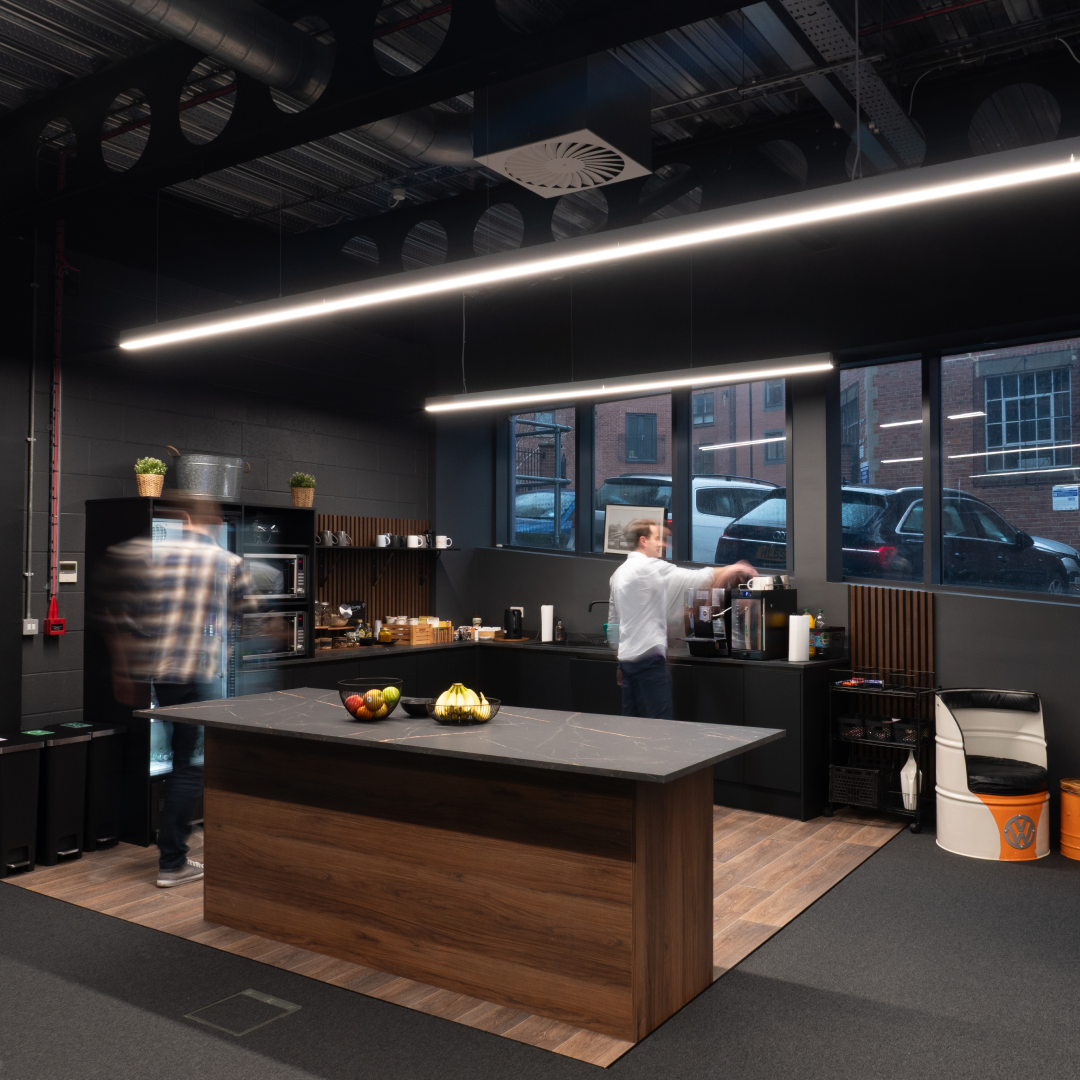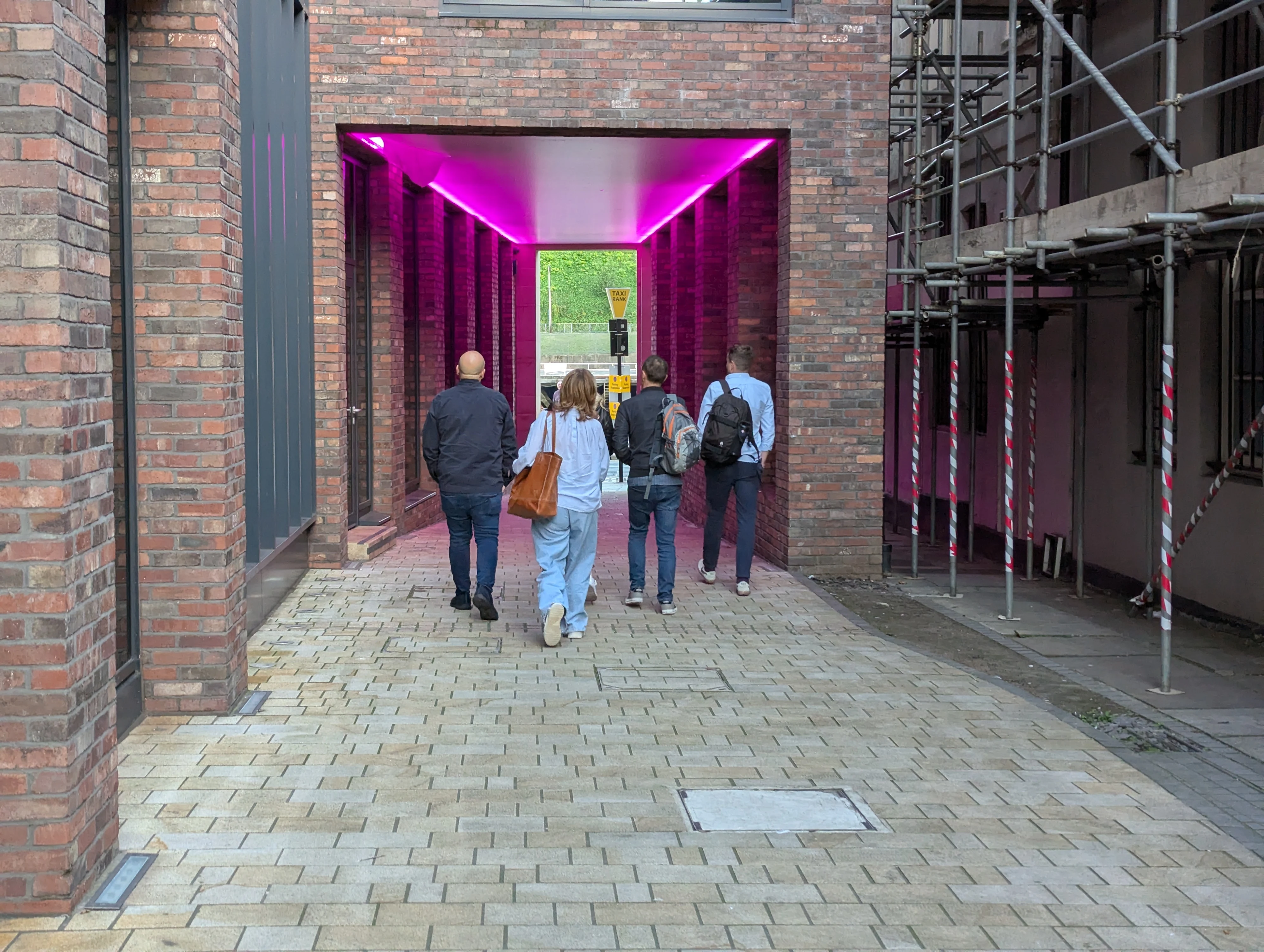As part of our Developing You series of workshops, our Exec Director Erin ran a session on psychological safety and compassion during our most recent collaboration week. This involved talking through the following principals, followed by a Values Speed Dating activity where employees rotated through pairs and answered questions on authenticity and values, ranging from who they admired at work to whether they preferred the window or aisle seat.
Innovation doesn’t thrive in silence - it flourishes where people feel safe to speak up. When team members are comfortable being honest and open, without fear of judgment, creativity and collaboration naturally follow.
This is the essence of psychological safety, a concept backed by research and increasingly seen as essential for high-performing teams.

What Is Psychological Safety?
Psychological safety refers to an environment where individuals feel secure enough to express ideas, share feedback, and admit mistakes without fear of embarrassment or punishment. It creates a foundation of trust, vulnerability, and connection, core elements of any thriving team culture.
Google’s Project Aristotle famously explored what makes teams effective. Their most powerful finding wasn’t that the smartest people or the fastest workers made the difference. It was the presence of psychological safety. Teams performed best when members felt safe to speak freely and take risks. Two characteristics stood out:
- Equal turn-taking in conversations
- High social sensitivity - being attuned to others' emotions and needs.
Building Blocks of Psychological Safety
Creating this environment doesn’t require grand gestures. It starts with how we communicate and connect day-to-day:
- Empathy: Understand where someone is coming from. You don’t need to agree to empathize - just listen with care. Ask open-ended, curious questions like, “Can you help me understand how you got to that view?”
- Active Listening: Instead of formulating your response while someone’s talking, focus on truly understanding them. Reflect their words back to confirm you’ve heard them accurately.
- Compassionate Feedback: Give feedback with clarity and care. Be specific and show that you genuinely want the other person to succeed.
- Micro-practices: Normalize regular feedback by making it part of everyday conversations. Talking about how to improve should feel as natural as celebrating what’s going well.
Radical Candor: Care Personally, Challenge Directly
One effective model for psychological safety is Kim Scott’s Radical Candor, which combines two powerful ideas:
- Care Personally: Show sincere interest in your colleagues as people. Praise should be thoughtful and specific, with clear mention of its positive impact.
- Challenge Directly: Don’t avoid tough conversations. Give feedback promptly, focus on behaviors (not personalities), and be clear about the desired outcome. Be humble, approach with curiosity, not certainty.
Stay Curious
Curiosity changes everything. When we approach others with genuine interest “Why do they see it that way?” instead of “How can I prove I’m right?”, we de-escalate tension, build empathy, and open space for growth. This mindset is equally powerful when receiving feedback. Rather than reacting defensively, ask, “What can I learn here?”
Authenticity and Vulnerability
Finally, authenticity strengthens psychological safety. This means being honest, self-aware, and aligned in values and actions—without oversharing or expecting everyone to adapt to you. Vulnerability might mean admitting uncertainty or sharing past mistakes and lessons learned. When leaders and teammates model this, they encourage others to do the same.
In summary, when people feel heard, respected, and safe to be themselves, teams do more than work - they thrive. Psychological safety isn’t soft. It’s smart. It’s strategic. And it starts with how we show up every day.













